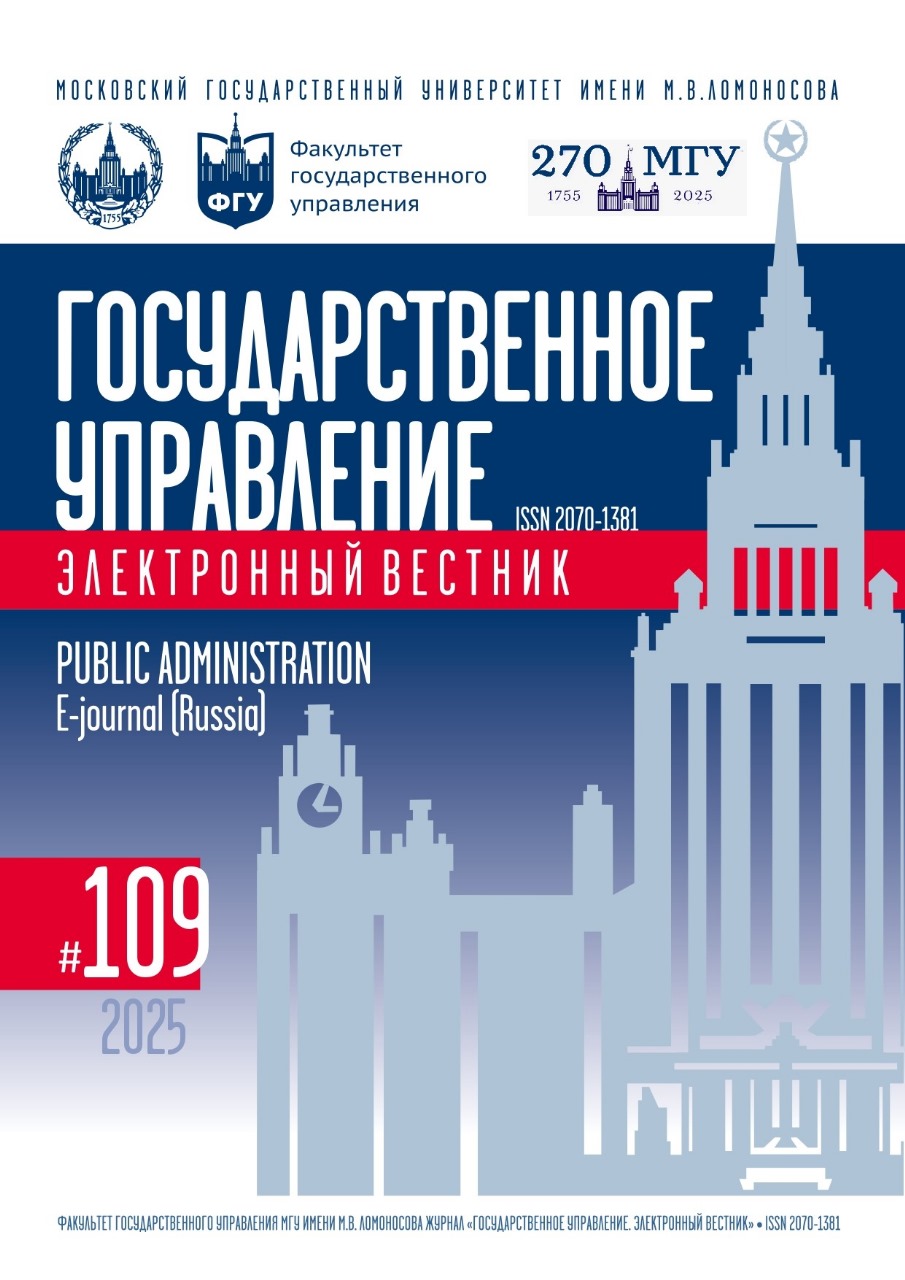From the Pharmaceutical Industry to the AI Industry: The Regulation Transfer
DOI:
https://doi.org/10.55959/MSU2070-1381-109-2025-45-51Keywords:
Artificial intelligence, AI for Good, regulation, copyright, pharmaceutical industry, generics, technological generics.Abstract
The study is devoted to the topical issue of mechanisms for regulating the development of artificial intelligence. Growing competition in the field of artificial intelligence (AI) leads to unpredictable consequences: on the one hand, new players appear who use non-standard methods of developing AI systems and strategies for promoting them on the market, which are largely beneficial to consumers, and on the other hand, ambiguous ethical conflicts arise that lead to unfair competition, violation of intellectual property rights and a policy of companies’ secrecy. The emerging dilemmas are largely related to the unregulated nature of the AI sphere, the absence of universal legal norms, common moral standards, principles and rules, and finally, the dramatic struggle for dominance between states, their coalitions and ideologies. The article examines the pressing issues of “the race for priority and dominance” in the field of AI: trust, honesty, respect for different ideologies, human rights and sovereignty of states. Given the youth of the AI industry and the absence or inconsistency of many mechanisms of state, public and internal corporate control, researchers and practitioners can rely on ethical rules from other areas, such as pharmaceuticals. By systematically comparing the common characteristics and differences between the pharmaceutical and artificial intelligence industries, as well as on the basis of experience in regulating medicines, the paper formulates recommendations on the ethical and legal aspects of regulating AI.
References
Гарбук С.В. Модель доверия к прикладным системам искусственного интеллекта // Вестник Московского университета. Серия 21. Управление (государство и общество). 2024. Т. 21. № 4. C. 151–169. DOI: 10.55959/MSU2073-2643-21-2024-4-151-169
Кондрашов П.Е., Петрунин Ю.Ю., Попова С.С. Регулирование разработки и применения искусственного интеллекта: проблемы и направления развития // Вестник Московского университета. Серия 21. Управление (государство и общество). 2025. Т. 22. № 1. C. 3–19. DOI: 10.55959/MSU2073-2643-22-2025-1-3-19
Кроуфорд К. Атлас искусственного интеллекта. Руководство для будущего. М.: издательство «АСТ», 2023.
Латынцев А.В. Соотношение правовых институтов патентного права и регулирования обращения лекарственных средств // Lex Russica. 2025. Т. 78. № 1(218). С. 50–58. DOI: 10.17803/1729-5920.2025.218.1.050-058
Ли Яо. Нормативно-правовое регулирование генеративного искусственного интеллекта в Великобритании, США, Европейском союзе и Китае // Право. Журнал Высшей школы экономики. 2023. Т. 16. № 3. С. 245–267. DOI: 10.17323/2072-8166.2023.3.245.267
Наумов В.Б. Право на отказ от цифровых технологий в сфере искусственного интеллекта // Вестник Университета имени О.Е. Кутафина (МГЮА). 2024. № 10(122). C. 26–36. DOI: 10.17803/2311-5998.2024.122.10.026-036
Орлова А.И. Патентные стратегии в фармацевтике: «патентное озеленение» // Журнал Суда по интеллектуальным правам. 2019. № 26. С. 83–89.
Петрунин Ю.Ю., Бухарин В.В. От информационной безопасности к национальной: противоборство IT-компаний США и КНР // Безопасность цифровых технологий. 2024. № 2(113). С. 25–54. DOI: 10.17212/2782-2230-2024-2-25-54
Цомартова Ф.В. Проблемы соотношения систем государственной регистрации лекарственных препаратов и их патентной охраны // Право. Журнал Высшей школы экономики. 2019. № 1. С. 133–157. DOI: 10.17323/2072-8166.2019.1.133.157
Gou J., Yu B., Maybank S.J., Ta D. Knowledge Distillation: A Survey // International Journal of Computer Vision. 2021. Vol. 129. P. 1789–1819. DOI: 10.1007/s11263-021-01453-z
Mittelstadt B. Principles Alone Cannot Guarantee Ethical AI // Nature Machine Intelligence. 2019. Vol. 1. P. 501–507. DOI: 10.1038/s42256-019-0114-4
Downloads
Published
Similar Articles
- Ilya M. Kuznechenko, Risks of Decision-Making Organization and Implementation Based on Big Data Analytics and Artificial Intelligence , Public Administration. E-journal (Russia): No. 104 (2024)
- Zhang Jianhua, Innovation Research on Digital Transformation of Manufacturing Industry in China and Russia in the Digital Economy Era , Public Administration. E-journal (Russia): No. 110 (2025)
- Ilia S. Balakshin, Marketplace Trends and Industry Expertise in Russia , Public Administration. E-journal (Russia): No. 109 (2025)
- Mikhail S. Vagin, Elena S. Palkina, Economic and Mathematical Model for Assessing Synergetic Effect of Lean Production and Digitalization Joint Implementation on Industrial Enterprise , Public Administration. E-journal (Russia): No. 112 (2025)
- Zoya A. Kapelyuk, Irina P. Solovyova , Instruments for State Regulation of the Market of Plant Cell Concentrates Based on Medicinal Herbs , Public Administration. E-journal (Russia): No. 108 (2025)
- Matvey S. Oborin, Stanislav P. Orlov, Approaches to Developing Mechanism for State Regulation of Recreation and Tourism Sector , Public Administration. E-journal (Russia): No. 111 (2025)
- Sergey N. Grinyaev, Value Orientations and Public Service in the Context of New Challenges and Threats , Public Administration. E-journal (Russia): No. 108 (2025)
- Yuriy Y. Petrunin, Natella Z. Nuralieva, Trust in Generative Artificial Intelligence as a Mirror of Institutional Trust , Public Administration. E-journal (Russia): No. 113 (2025)
- Alexander A. Kurdin, Anna I. Meleshkina, Sergei I. Fedorov, Adaptation of Russian Automotive Industry to the Impact of New Sanctions , Public Administration. E-journal (Russia): No. 106 (2024)
- Sergey E. Trofimov, Development of the Oil and Gas Potential of the Arctic Region: Issues of Methodology and Practical Implementation , Public Administration. E-journal (Russia): No. 104 (2024)
You may also start an advanced similarity search for this article.




